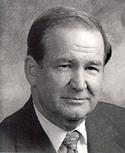“I hold it that a little rebellion now and then is a good thing, and as necessary in the political world as storms in the physical.”
If Thomas Jefferson’s benign reflection on Shays’ Rebellion, that uprising of farmers in 1786 and 1787, is not the first thought that comes to mind today for his fellow Virginian Eric Cantor, surely it is understandable.
For the rebellious subjects of the 7th Congressional District just voted to end Cantor’s career as House majority leader.
Many lessons are being read into and taken away from Cantor’s defeat. But that election has also revealed a populist path, both to the Republican nomination in 2016 and perhaps to the presidency.
For what were the elements of Randolph-Macon College professor Dave Brat’s victory and of Cantor’s defeat?[amazon asin=B007SRWKXS&template=*lrc ad (right)]
First, the perception that Cantor was willing to do a deal with Barack Obama to provide a partial amnesty to illegal immigrants — while the media provided wall-to-wall coverage of the latest invasion across our southern border — proved devastating.
Talk radio, led by Laura Ingraham and Mark Levin, pounded Cantor on the issue of illegal immigration, the emotive power of which our Beltway elites will never understand.
For like Eurocrats, the leaders of our Beltway parties call to mind the “sophisters” and “calculators” of Edmund Burke’s depiction.
They do not understand people of the heart to whom illegal and mass immigration means the disappearance of the country they grew up in and the dispossession of their children of what is most precious to them.
Then there is populism. Cantor spent $5 million, an astonishing sum in a congressional primary, 50 times what Brat spent. Yet he only reinforced his image as a poodle of Wall Street and K Street.
Of the bank bailout that Cantor supported, Brat was brutally effective.[amazon asin=0307405168&template=*lrc ad (right)]
“All the investment banks up in New York and D.C. … those guys should have gone to jail. But instead of going to jail … they went onto Eric’s Rolodex. … And they’re sending him big checks.”
Brat also had going for him that he is an outsider, when those in the capital are widely disliked, distrusted or even detested by Middle America.
Anti-establishment, outsider, defender of national borders — these were the cards Brat was holding, even if he had little money or organized support.
Yet were these not the same issues and stances of the candidates and parties that jolted Europe in May by running first in the EU elections?
In the endless struggle between populism and the establishment and between nationalists and internationalists, populists and nationalists appear, at least temporarily, to be in the ascendancy worldwide.
Vladimir Putin’s approval is over 80 percent.[amazon asin=0312341164&template=*lrc ad (right)]
Why? He stands for national sovereignty and the rights of Russians, wherever they may be. And in hearing his claim that Crimea is Russia’s, are there not echoes of Reaganite nationalism in the Panama Canal debate:
“We bought it. We paid for it. It’s ours. And we’re gonna keep it.”
The nationalist card is also being played by Beijing with its claim, wildly popular in China, to all of the islands in the East China and South China seas.
And nationalism is being invoked by Prime Minister Shinzo Abe in calling for rearmament and amending Japan’s pacifist constitution.
Cantor’s defeat seems certain to halt any Republican move to accommodate Obama on amnesty. Should House Speaker John Boehner try to move ahead on even partial amnesty, says Rep. Steve King of Iowa, it “would blow up the caucus.”
Consider, then, the political terrain six months before the preseason of 2016 begins.[amazon asin=0312374364&template=*lrc ad (right)]
According to every national poll, Americans believe that our country is on the wrong course, that it is less respected than it has ever been abroad and that our children and their children will most likely not know the good life that we have had.
Americans disapprove of the president and have little confidence in either party or in Congress. Few believe that the government is as well-run as it was in World War II or when Ike was creating the federal highway system or America was sending astronauts to the moon.
 The landscape looks inhospitable for establishment candidates, such as Jeb Bush, who says illegal aliens crossing our border are engaging in an “act of love” and who is a proud and principal promoter of the Common Core curriculum being imposed on the nation’s schools.
The landscape looks inhospitable for establishment candidates, such as Jeb Bush, who says illegal aliens crossing our border are engaging in an “act of love” and who is a proud and principal promoter of the Common Core curriculum being imposed on the nation’s schools.
Nor does the terrain seem favorable for former first lady Hillary Clinton. Though she may have had to scratch and claw her way out of debt and destitution when she and her husband were “dead broke,” she is seen nationally, and not incorrectly, as the queen of the establishment, someone who banks six-figure fees for half-hour lectures.
No two people ever milked a political office for more than these two have milked the presidency of the United States. And no two people are more wired in to the Hollywood, Wall Street and Washington elites.
If Jeb and Hillary are both in the lists in 2016, it will be God’s gift to pitchfork populists.




